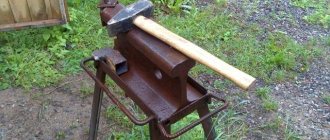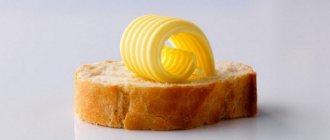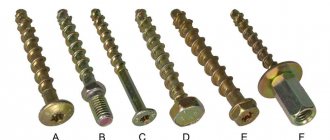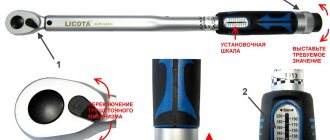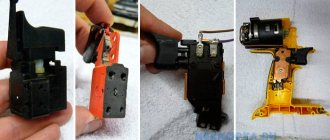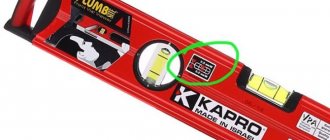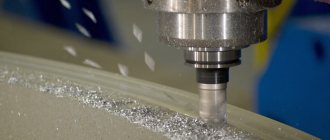Our guide on how to craft a Minecraft anvil and use it to repair and rename items. Looking for an anvil recipe for Minecraft?
Or how to use this handy block? The Anvil in Minecraft is a great tool that can be used to repair and rename items, as well as to combine Enchanted items.
An anvil is similar to a whetstone, however any items used on a Minecraft anvil will retain their enchantment. The anvil can be damaged over time and has a 12% chance of being damaged each time it is used, this does not affect the function of the anvil but it will wear down until it is eventually destroyed. There is no way to repair an anvil, so you will need to keep the Minecraft anvil recipe on hand. An anvil can also be damaged and destroyed when dropped, if an air block is below the anvil it becomes a falling anvil and damages any player or mob it falls on. It works the same way as falling sand, gravel, concrete powder and dragon eggs.
Apart from mining anvils using a pickaxe, anvils can also be crafted using the following Minecraft anvil recipe.
Anvil in Minecraft: item review
Item Description
An anvil is a block, thanks to which you can, using the character’s experience, repair and also assign names to objects. And the key distinguishing feature of an anvil from a workbench or inventory is that by combining two enchanted items together, in addition to restoring strength, the enchantments placed together are added together.
Thus, the anvil opens up the ability for the character to repair objects using materials corresponding to the same objects. For easy understanding, as an example, a diamond pickaxe, using an anvil, can be repaired using diamonds . Well, you can also use an enchanted book to cast enchantments on objects.
In addition, it should be understood that the anvil will gradually deteriorate as it is used (and also from falling). In this regard, each anvil has 3 levels of damage quality. And each of these levels is characterized by the presence of a larger number of cracks, which in turn appear on the working surface of the anvil.
How to craft an anvil in Minecraft?
The anvil actually requires quite a lot of resources. Because in addition to iron ingots (in the amount of 4 pieces), it is necessary to make 3 iron blocks, each of which separately requires 9 iron ingots. In any case, if resources are not an issue, the recipe for creating an anvil is as follows:
How to use?
There is nothing complicated about using a Minecraft anvil. Because it is enough to make the object itself, place it and right-click on it to open a special interface where you can: repair the object, enchant the object, or create an object to change the name. In addition, the anvil is often used to create traps, but more on that below.
Repairing items in the game
- Placement and strength percentage . The first step to repair an item is to open the anvil interface and place 2 items (identical) inside. The strength of the final item will be about 7% greater than the original one.
- Repair using resources . Since the release of the game version “12w42a”, anvils have acquired new mechanics - from now on, items can be repaired using the appropriate resources. For example, to repair iron tools or weapons, you need to use an iron ingot.
And to implement your plan, you just need to put a tool in the left slot inside the anvil so that there is a resource in the right slot. In the end, all that remains is to repair the selected item.
- Features of equipment repair . With the help of an anvil, if desired, you can even repair elements of chain mail armor - for this it is enough to also use iron ingots. In general, it should be understood that 1 unit of resource can restore an average of about 25% of the strength units to an object.
And from the point of view of economy, the mechanics are extremely beneficial if it is necessary to repair an item so as not to lose the enchantments that have been applied. Even if we are talking about armor, since to fully repair armor you need a maximum of 4 units of a certain resource. On the other hand, it is worth understanding that with each new repair the amount of experience required for this process will increase. And this number will increase to the extent that the item cannot be repaired at all.
Receipt
Destruction
Anvils can be mined with any pickaxe. When mining without a pickaxe, nothing drops.
| Block | Anvil |
| Rigidity | 5 |
| Tool | |
| Break time | |
| Default | 25 |
| Wood | 3.75 |
| Stone | 1.9 |
| Iron | 1.25 |
| Diamond | 0.95 |
| Netherite | 0,85 |
| Gold | 0,65 |
Natural generation
A damaged anvil is generated in the "Blacksmith's Room" of the forest mansion.
Craft
A A total of 31 iron ingots are required to craft an anvil (including 27 for three iron blocks).
| Ingredients | Crafting recipe |
| Iron block + iron ingot |
How to use as traps?
Anvil traps in Minecraft are made possible due to the fact that gravity will act on these objects. In this regard, they can be very different, but their essence always boils down to the fact that it is necessary to use pistons, which, when activated, for example, a pressure plate, move blocks under the anvil, after which they, in turn, fall on other players or mobs. They have different shapes, sizes and numbers, but the pattern is always approximately the same.
general information
- If an item is renamed, such as diamonds, it cannot stack with unnamed or otherwise named items.
- For unenchanted items, "repairing a unit" can easily cost more material than simply crafting a new item or merging damaged items. The exception is armor, where players can use less material at the cost of experience levels.
- If placed on top of exploding TNT blocks, the explosion will not affect the surrounding area. This is because the anvil falls into the space that the TNT entity occupies, and since the power of the TNT explosion is not high enough to destroy the anvil, no blocks are destroyed.
- In Java Edition
, any item can be enchanted with an anvil in creative mode.
Mods for the anvil in the game
- Mod "Extra Anvils" . After installing this mod, new anvil options will appear in Minecraft. For example, it will be possible to create a gold or diamond anvil. The key advantage of these options is that they have better characteristics: you can cast better enchantments, increased durability, and much more.
- Mod "Anvil Tweaks". With this project, the anvil's capabilities will be significantly expanded, and the object itself will undergo changes. For example, after the interface is closed, items inside will no longer fall out; objects will now be visible from the outside; broken items will be automatically thrown away and much more.
- Mod "Better Anvils" . An extremely useful modification that removes the experience limit for the anvil. Thus, if previously items that require more than 40 experience levels could not be enchanted, now there are no restrictions.
- Mod "InfiniAnvil" . Some players don't like the durability of the anvil. And they can be understood, because how can it break, given that you don’t have to use it that often? That's why this mod was released, which makes the anvils infinite. In addition, this project will be useful on servers where there are arenas or mini-games.
- Mod "Anvil Enchantments». Another auxiliary mod that significantly expands the capabilities of the anvil. After installing it in Minecraft, thanks to the anvil, it will be possible to craft level 1 enchantment books. In addition, the recipes themselves are simple and do not require anything serious.
Data values
ID
Java Edition
:
| Name | ID in namespace | Block tags (JE) | Element Tags (JE) | Translation key |
| Anvil | Anvil | Anvil | anvil | block.minecraft.anvil |
| Chipped Anvil | chipped_anvil | anvil | anvil | block.minecraft.chipped_anvil |
| Damaged anvil | Damaged_anvil | anvil | anvil | block.minecraft.damaged_anvil |
Bedrock Edition:
| Name | ID in namespace | Numeric identifier | Translation key |
| Anvil | anvil | 145 | tile.anvil.intact.name tile.anvil.slightlyDamaged.name tile.anvil.veryDamaged.name |
Block states
See also: Status block
Java Edition
:
| Name | Default value | Valid values | Description |
| face | north | east north south west | An anvil pointing north or south is aligned with its long dimension pointing north-south. The anvil pointing east or west is aligned with its long dimension pointing east-west. This value is 90° clockwise from the direction the player is facing when placing the anvil. |
Bedrock Edition:
| Name | Default value | Valid values | Description |
| damage | undamaged | broken | Broken Anvil (not available, uses base anvil texture) |
| slightly damaged | Slightly damaged anvil | ||
| undamaged | anvil. | ||
| very_damaged | A badly damaged anvil. | ||
| direction | 0 | 0 1 2 3 | The anvil indicating north or south is aligned with its long dimension indicating north-south. The anvil pointing east or west is aligned with its long dimension pointing east-west. > This value is 90° clockwise from the direction the player is facing when setting anv. il. |
Block data
See also: Data values
In Bedrock Edition, anvils use the following data values:
| D.V. | Description |
| 0 | Anvil facing west |
| 1 | Anvil facing north |
| 2 | Anvil facing east |
| 3 | Anvil facing south |
| 4 | Slightly damaged anvil facing west |
| 5 | Slightly damaged anvil, facing north |
| 6 | Slightly damaged anvil, facing east |
| 7 | Slightly damaged anvil facing south |
| 8 | A very damaged anvil facing west |
| 9 | A very damaged anvil facing north |
| 10 | Very Damaged Anvil, Facing East |
| 11 | Very damaged anvil, facing south |
| 12 | Broken anvil facing west |
| 13 | Broken anvil facing north |
| 14 | Broken anvil facing east |
| 15 | Broken anvil facing south |
Falling block
Falling block
| Hitbox size | Height: 0.98 blocks Width: 0.98 blocks |
Main article: Falling block
- Dynamic block object data Tags common to all objects, see Template: Nbt inherit/entity/template
- BlockState: The falling block represented by this object. Name: ID of the block in the namespace.
- Properties: optional. Block states within a block. Name
: The name of the block state and its meaning.
is not removed, even if it is set.
How to get an anvil through creative mode?
- First you need to open the chat window using the English key “T”.
- Next, using the line that appears, you need to enter the command - “/give @p minecraft:anvil” .
- You should secure the result with the “Enter” key, that is, press enter.
On the other hand, if suddenly one anvil is not enough, then you can write the required number of these objects at the end of the command “/give @p minecraft:anvil” separated by a space. That is, you need to do everything the same as described above, but enter a slightly different command, for example, “/give @p minecraft:anvil 64” (as a result, the character will receive 64 anvils).
What can be done
In the game, such a structure is aimed not only at repairing objects. It will also be needed to change certain types of effects that were applied through other items.
For this purpose, you will need to place components in the main menu, which are represented by the following solutions:
- Products identical to each other in charm;
- Enchanted book and item;
- 2 enchanted books.
When forging items with similar enchantments and the same achievement, the effects become much greater than before. It so happens that, for example, from two pickaxes with 4 efficiency, one appears with the fifth level. This makes it possible to obtain products with characteristics that were not available before.
The anvil is suitable for use in repairing various valuable products.
Secrets and tips for the anvil
- As mentioned above, anvils are affected by the gravity features of Minecraft, but in order to avoid an error that duplicates falling blocks, the ability to move anvils with pistons has been removed. However, despite this, it is still possible to move the anvils using pistons. They will simply move not the anvils themselves, but the blocks associated with them.
- When dropped, the anvil does not cause strictly defined damage, since the amount depends on the height of the fall. In addition, if a character or tamed animal dies from an anvil, then a message will appear saying that the creature was crushed by the falling anvil. However, the anvil cannot kill wanderer of the land, because the moment an anvil hits them, they instantly teleport.
- Another feature of a falling anvil is that if it falls on a character or another player, it will break the helmet they are wearing, completely. And it doesn’t matter what material this helmet was made from.
- Absolutely any anvil can be destroyed with an explosion, although the explosion itself will not spread further. However, if you place a TNT block on top of the anvil and then activate it, then the anvil will not receive any damage.
Sooner or later, the character will have to create an anvil. Because it allows you to get better equipment. For example, thanks to an anvil you can acquire netherite armor. And if suddenly the features of this object bring a certain discomfort, then we definitely recommend using the proposed mods, which will significantly simplify and make the gameplay more comfortable.
Click to rate this game!
[Total: 0]
Sounds
| Sound | Subtitles | Source | Description | ID in namespace | Translation key | Volume | Step | Attenuation distance |
| https://minecraft.gamepedia.com/File:Stone_hit1.ogg https://minecraft.gamepedia.com/File: Stone_hit2.ogg https://minecraft.gamepedia.com/File:Stone_hit3.ogg https://minecraft .gamepedia.com/File:Stone_hit4. ogg https://minecraft.gamepedia.com/File:Stone_hit5.ogg https://minecraft.gamepedia.com/File:Stone_hit6.ogg | Breaking blocks | Blocks | ? | block. anvil.hit | subtitles.block.generic.hit | 0.1625 | 0,5 | 16 |
| https://minecraft.gamepedia.com/File:Stone_dig1.ogg https://minecraf t.gamepedia.com/File:Stone_dig2.ogghttps://minecraft.gamepedia.com/File:Stone_dig3.ogg https://minecraft . gamepedia.com/File:Stone_dig4.ogg | The block is broken | Blocks | ? | block.anvil.break | subtitles.block.generic.break | 0,65 | 0,8 | 16 |
| https://minecraft.gamepedia.com/File: Anvil_land.ogg | Block placed | Blocks | ? | block.anvil.place | subtitles.block.generic.place | 0,65 | 0,8 | 16 |
| https://minecraft.gamepedia.com/File:Stone_hit1.ogghttps://minecraft.gamepedia.com/File:Stone_hit2.ogg https://minecraft. gamepedia.com/File:Stone_hit3.ogghttps://minecraft.gamepedia.com/File:Stone_hit4.ogg https://minecraft.gamepedia. ru/File: Stone_h it5.ogg https://minecraft.gamepedia.com/File:Stone_hit6.ogg | Steps | Blocks | ? | block.anvil.step | subtitles. block.generic.footsteps | 0,045 | 1.0 | 16 |
| https://minecraft.gamepedia.com/File:Stone_hit1.ogg https://minecraft.gamepedia.com/File:Stone_hit2. ogg https://minecraft.gamepedia.com/File:Stone_hit3.ogg https://minecraft.gamepedia.com/File:Stone_hit4.ogg https://minecraft.gamepedia.com/File:Stone_hit5.ogghttps://minecraft .gamepedia.com/File:Stone_hit6.ogg | No | Blocks | ? | block.anvil.fall | None | 0,15 | 0,75 | 16 |
| https://minecraft.gamepedia.com/File:Anvil_destroy. ogg | Anvil destroyed | Blocks | ? | block.anvil.destroy | subtitles.block.anvil.destroy | 1.0 | 1.0 | 16 |
| https://minecraft.gamepedia.com/File:Anvil_land.ogg | The anvil has landed | Blocks | ? | block.anvil.land | subtitles.block.anvil.land | 1.0 | 1.0 | 16 |
| https://minecraft.gamepedia.com/File: Anvil_use.ogg | Anvil used | Blocks | ? | block.anvil.use | subtitles.block.anvil.use | 1.0 | 1.0 | 16 |
Preparatory stage
To make an anvil with your own hands, you need to have a piece of crane rail, approximately 25 cm, a grinder, a welding machine, pieces of reinforcement of the same length, a piece of profile pipe (about 10 cm). Also, if a master needs a conical horn, then there are two options for getting out of the situation. In the first case, a grinder is taken, a cone is cut from a single piece of rail and a cone is machined. This is a very labor-intensive process, so it is better to use the second option and weld a ready-made cone, turned separately on a lathe. Next, start marking out future parts. When everything is thought out and measured out, you can begin the main work of making an anvil with your own hands.
